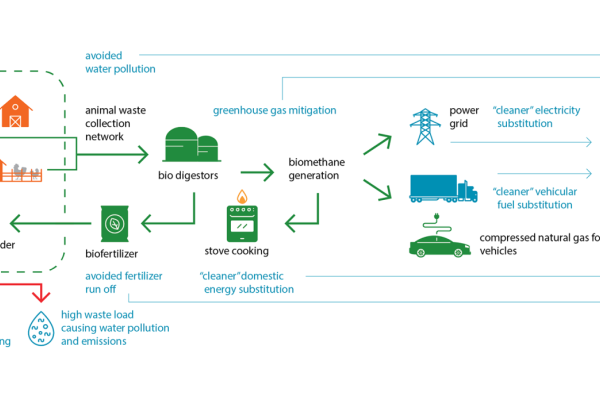Our Research Systems analytics for small farms animal waste resource recovery
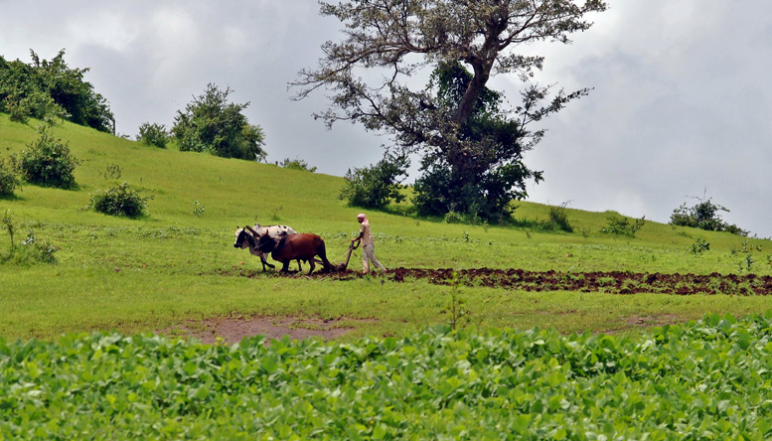
Small farms have fewer animals per farm, but their collective environmental impacts are significant. Credit: Chetan Jawale, licensed under CC BY-NC-ND 2.0
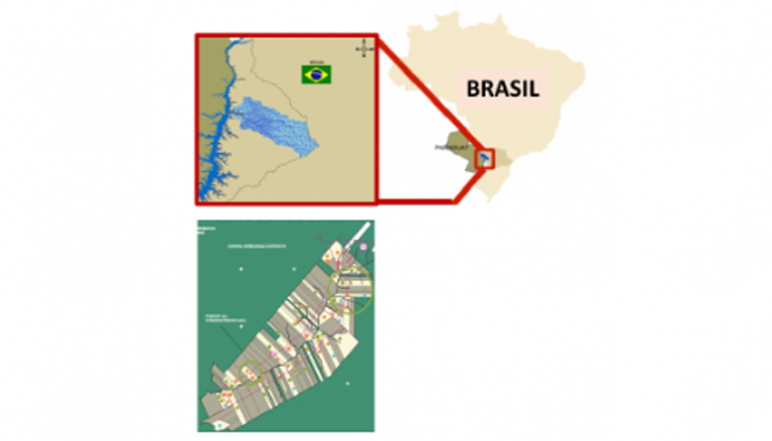
Location of Pilot project in Parana, Brazil. Detailed map in green shows agribusiness cooperative consisting of participating (light shade) and non-participating farms (dark shade). Credit: de Weck Research Team.
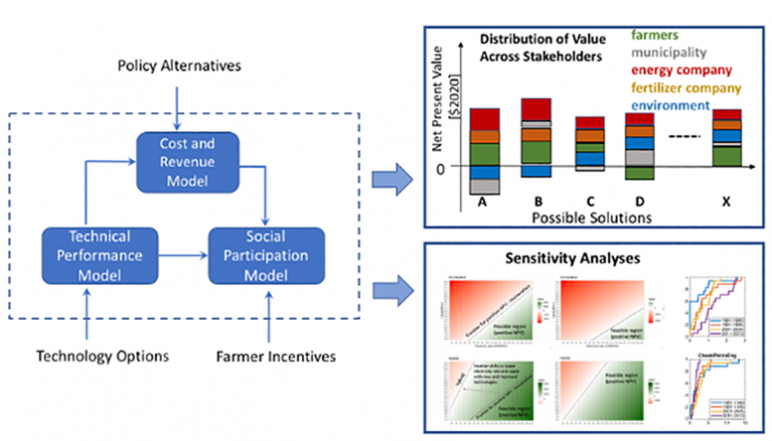
Key outputs will include evaluation of distribution of cost and benefits across stakeholders. Credit: de Weck Research Team.
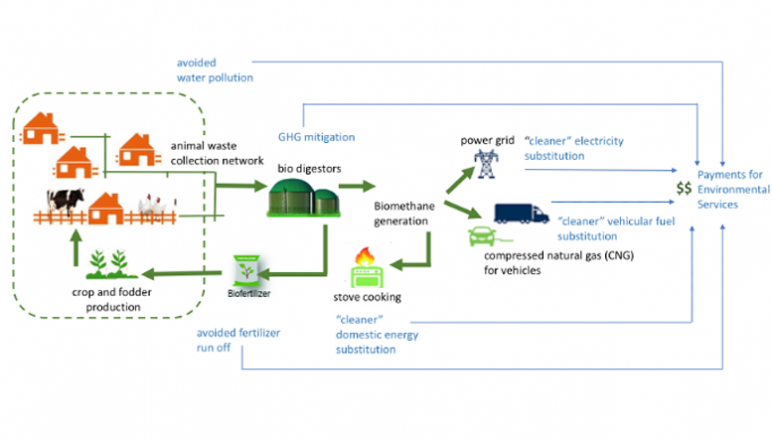
Recovery and use of energy and nutrients from animal wastes along with Payments for environmental services (PES) policies can make animal waste management viable on small farms. Credit: de Weck Research Team.
Principal Investigators
Challenge:
What are economically sustainable solutions to reduce the environmental footprint of animal waste on small-scale farms?
Research Strategy
- Use quantitative systems analysis for new cost-benefit modeling that includes technology costs, accounting for avoided pollution and emissions reductions, and monetization of benefits
- Analyze distribution of costs and benefits across stakeholders in the system
- Use field-interviews and discussions with farmers and policy makers to understand social motivations and incentives
Project description
Smallholder farmers account for the majority of farms worldwide but have few to no systems for environmentally safe disposal of animal wastes. Large industrial animal farms are often able to convert animal wastes into energy; however, the costs of waste management systems remain prohibitive for small farms. While some have examined singular interventions such as a new technology or a one-time subsidy to reduce the environmental footprint of animal wastes, such efforts have not shown long-term viability. This project, using a systems analytics approach, will examine how combinations of interventions (consisting of technical systems, social incentives, and policy measures) can create economically viable and robust solutions for handling small-farm animal wastes.
Leveraging an international and multi-disciplinary team, the researchers will develop modeling and analysis tools for designing sustainable systems in which costs and benefits are adequately distributed across stakeholders for long-term viability. Data from a pilot program in Paraná, Brazil will be analyzed to create new cost-benefit models that explicitly account for avoided pollution and emissions reductions and monetize those benefits through payments for environmental services (PES) programs. This work will contribute to addressing the broader question of how to protect the environment and improve livelihoods for those employed in food production, and how to do so for small and medium sized farms where economies of scale are different from large industrial farms.
Outcomes
- Conducted problem scoping through studying small farms in Brazil that line the Paraná River, and holding collaborative meetings with local Brazilian experts, including those at the International Center of Renewable Energy – Biogas (CIBiogas)
- Created simulation and optimization models that allow for systematically studying technology, cost, and performance of waste-to-energy systems for farm animal waste management
- Demonstrated, through implemented models, that regional manure-to-energy biogas systems can enhance economic and environmental sustainability in areas with accessible terrain and large farms in close proximity. In remote areas with small farms, challenging transportation, and large distances between farms, the system, would not be self-sustaining and require government subsidies to achieve economic feasibility
Publications
Optimizing energy production from livestock biogas networks in southern Brazil: economic and environmental perspectives
Phillip Schmedeman, Karthik Rajasekaran, Afreen Siddiqi, Cristian Junge, Chun Hern Tan, Janaina Pasqual Lofhagen, Felipe S Marques and Olivier de Weck, IOPscience, 2025
News
Additional Details
Impact Areas
- Food
- Climate & Sustainability
Research Themes
- Sustainability & Adaptation
- Economics, Policy, & Practices
- Modeling & Data Analytics
Year Funded
- 2021
Grant Type
- Other
Status
- Completed


